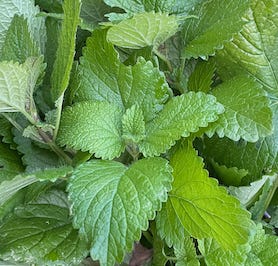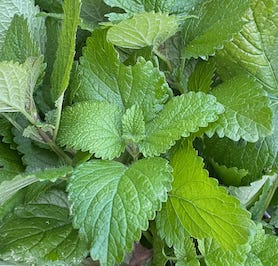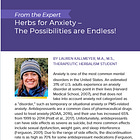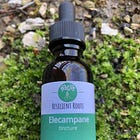My serious foray into herbalism started with lemon balm. Initially I just liked the smell and enjoyed its abundant and determined energy, observing as it migrated from my potted plants to cracks in the sidewalk outside our shotgun house in downtown Louisville. At some point I read in a gardening book that lemon balm also made a relaxing tea. As a chronic worrier and overachiever who wanted more control over my body, the concept of growing my own medine to ease my stress and anxiety was very appealing! And that was the gateway herb that prompted me to get a formal herbal education.1
As I sit here sipping on a cup of lemon balm, lemongrass, lemon basil, lemon verbena and ginger (delicious), I still find it miraculous that some of the most easy to grow plants are also the most powerful in terms of their ability to provide an immediate sense of calm and relaxation. And as humans living through times that our nervous systems haven’t quite caught up with yet, we certainly need all the help we can get. This is your friendly reminder to take your herbs!!!
Not only are there thousands of years of traditional use for herbs like lemon balm, chamomile, and passionflower, there is a surprising2 amount of scientific research to support their use. Want some proof? Below is a short research summary on passionflower and chamomile that I originally wrote for my University’s newsletter.
(TLDR? Chamomile and passionflower have both been studied with positive results for acute and generalized anxiety.)
PS: I grow and process many amazing herbs that can help calm and heal your nervous system. I would love to sell you some and/or meet with you to help you figure out which herbs to work with. Please check out the links below for more info:)
Seriously. All the credit goes to lemon balm.
I say surprising because it is a common refrain from MDs that there is no research to support the use of herbs. I agree that there is not enough (and certainly won’t get better by gutting NIH funding), but there is plenty of research and history of use on most common herbs to support using them for common health concerns.








